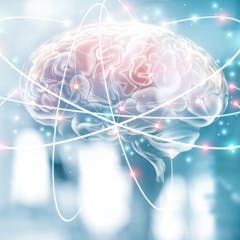
Articles on Neurodegenerative disease
Displaying 1 - 20 of 57 articles

A new study shows that it is possible to reduce the symptoms of amyotrophic lateral sclerosis by reducing the inflammation caused by immune cells in the brain.

No treatments are currently available to cure Parkinson’s disease. Better understanding the genetic foundation of this condition can help researchers find ways to slow or halt its progression.

B.C. has operated a surveillance program for over 20 years to detect chronic wasting disease, a fatal condition with no cure or vaccine. The disease has now been detected in deer in the province.

Studies show college athletes sleeping less than 7 hours per night are almost twice as likely to be injured when compared with athletes sleeping more than 8 hours.

Montréal is home to one of the world’s largest brain banks, the Douglas-Bell Canada Brain Bank, where discoveries about different neurological and psychiatric diseases are made.

Microscopic flakes of polystyrene can enter brain cells and cause harm, a new study in mice has shown.

This centuries old martial art was shown to reduce the severity of symptoms in the long-term.

The sense of smell is directly connected to areas of the brain linked to memory and emotions. That is why some smells bring to light memories and feelings we thought we had forgotten.

Despite decades of starts and stops, new treatments and key genetic discoveries are giving researchers great hope for slowing or eventually preventing Alzheimer’s disease.

Chronic traumatic encephalopathy is often assumed to be a disease which develops later in life, but a new study clearly shows it can start early in the brains of young athletes.

The surprising parallel between spider silk spinning and fibres toxic to humans could lead to new clues about how to fight neurodegenerative disorders.

This AI tool showed promise for early diagnosis. It also pointed to chemicals that may reduce or increase the risk of Parkinson’s.

Mitochondria, which are found in every cell in the body, play an important role in brain function.

FTD leads to changes in personality and behavior. Understanding its genetic and molecular causes could lead to new ways to treat neurodegenerative diseases.

Cells degrade and recycle damaged parts of themselves through a process called autophagy. When this “self-devouring” goes awry, it may promote cancer and neurodegenerative disease.

Inflammation and damage to the olfactory system from shingles, COVID-19 and herpes infections may contribute to Alzheimer’s disease.

Impaired insulin receptors in the blood vessels between the blood and the brain may contribute to the insulin resistance observed in Alzheimer’s disease.

Food allergies have been linked to behavioral and mood disorders, including depression, anxiety and ADHD.

Microglia, immune cells disguised as brain cells, are known as the janitors of the brain. Dialing up their usual duties just enough could provide an avenue to treat neurodegenerative disease.

Too much amyloid-beta in the brain has long been considered the cause of Alzheimer’s. New research suggests it might be the opposite.
